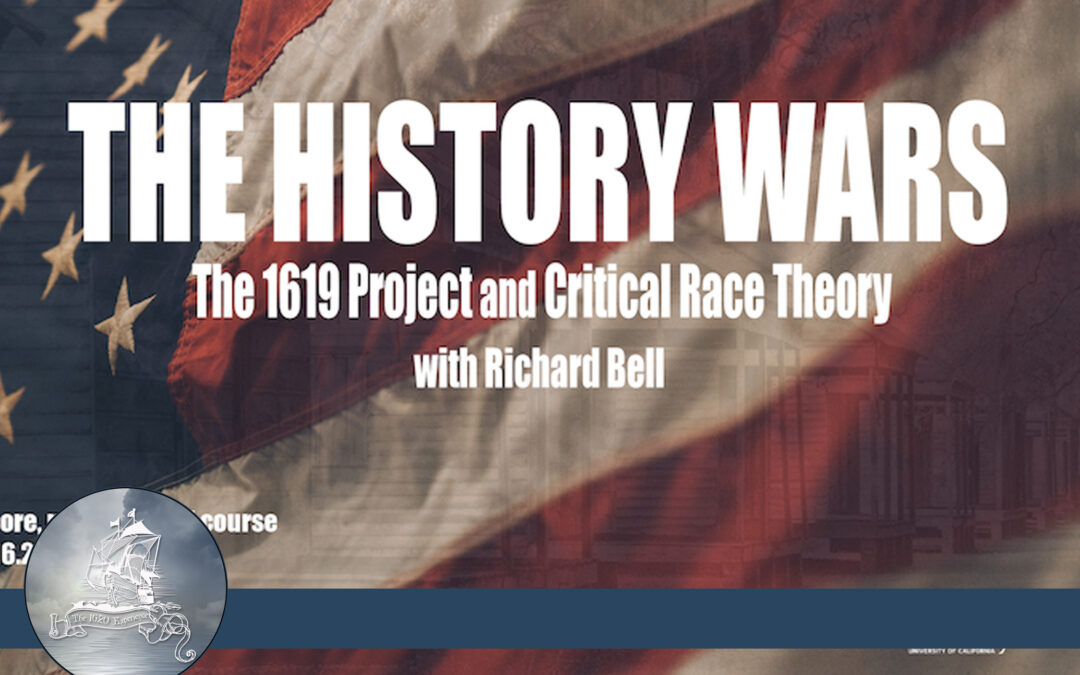The Battle Over America’s Founding Narrative
In recent years, a cultural battle has emerged over the narrative of America’s founding. The 1619 Project claims that America’s true founding began with the arrival of enslaved Africans in 1619, positioning slavery and systemic racism as central to the nation’s identity. This narrative has influenced public education, media, and political discourse. However, this faith-based project, The 1620 Experience, offers a counter-narrative rooted in the Pilgrims’ legacy of faith, freedom, and integrity. It presents a story of perseverance, critical thinking, and moral courage that shaped the foundation of America.
As William Faulkner once wrote, “The past is never dead. It’s not even past.” This quote reminds us that understanding our history is essential for shaping our present and future. The 1620 Experience aims to do just that by bringing the true story of the Pilgrims to life through a Christian lens.
The 1619 Project’s Impact on Education and Culture
The 1619 Project, published by The New York Times in 2019, reframes American history by asserting that the country’s true origin lies in the arrival of enslaved Africans. This narrative places a heavy focus on oppression and systemic racism as defining features of the American experience.
Since its release, the 1619 Project has been adopted by schools across the country, influencing how history is taught to millions of students. It has sparked debates and garnered both praise and criticism from historians. While its supporters argue that it sheds light on underrepresented stories, critics contend that it distorts historical facts and minimizes other foundational events, such as the Pilgrims’ journey in 1620.
By shifting the focus from the Pilgrims to slavery, the 1619 Project risks erasing the faith-driven values of the early settlers who played a pivotal role in shaping America’s identity.
The 1620 Story – A Different Foundation for America’s Identity
In contrast to the 1619 Project, The 1620 Experience highlights the Pilgrims’ journey as a foundational moment in American history. In 1620, the Pilgrims left England seeking religious freedom and self-governance. Upon arriving in the New World, they drafted the Mayflower Compact, a covenant that established a framework for governance based on mutual respect and shared values.
The Mayflower Compact is one of the earliest examples of democratic principles in action. It laid the groundwork for American self-governance and inspired future documents like the Declaration of Independence and the U.S. Constitution.
Through The 1620 Experience, audiences will see how the Pilgrims’ faith in God shaped their actions and decisions. Their story is one of courage, perseverance, and integrity—values that remain relevant today.
Faith in Action – Lessons from the Pilgrims’ Story
One of the most compelling aspects of the Pilgrims’ story is their faith in action. These men, women, and children faced extreme hardships, including harsh weather, disease, and scarcity. Yet, they remained committed to their mission of creating a society where they could worship freely.
The Pilgrims also demonstrated remarkable character in their interactions with Native Americans. They negotiated a 50-year peace treaty with the Wampanoag tribe, a testament to their diplomacy and respect for others.
This peace treaty—one of the longest-lasting in early American history—illustrates the Pilgrims’ ability to navigate racial tensions with integrity and mutual respect. Their actions serve as a powerful example for modern Christians who face their own ethical and moral challenges in a post-Christian culture.
Why a Counter-Narrative Matters Now
In today’s cultural climate, preserving America’s Christian heritage is more important than ever. The erasure of faith-driven stories from our history books leaves a void in understanding the values that shaped the nation.
The 1620 Experience seeks to fill this void by presenting a narrative that celebrates faith, freedom, and virtue. By showcasing the Pilgrims’ story, the project encourages viewers to reflect on their own values and civic responsibilities.
Teaching the true story of 1620 can inspire future generations to think critically, act with integrity, and pursue moral courage in their own lives. It’s a reminder that history isn’t just about the past—it’s about shaping the present and future.
How The 1620 Experience Can Spark Conversations
The 1620 Experience is more than a film—it’s a tool for sparking meaningful conversations in homes, churches, and schools. The project aims to:
- Inspire families to discuss the importance of faith and integrity.
- Equip churches with resources to teach about America’s Christian heritage.
- Provide homeschool groups with a curriculum that balances critical thinking with biblical values.
By making the series and its accompanying resources freely available, The 1620 Experience ensures that its message reaches a wide audience. The goal is to create a new Thanksgiving tradition—one that celebrates the Pilgrims’ legacy of faith and freedom.
A Call to Embrace the True Legacy of 1620
In a world where historical narratives are often reshaped to fit modern ideologies, it’s crucial to preserve stories that reflect faith, freedom, and integrity. The 1620 Experience offers a powerful counter-narrative to the 1619 Project, reminding us that America’s foundation was built on Christian principles.
As George Santayana famously said, “Those who do not remember the past are condemned to repeat it.” By engaging with The 1620 Experience, families, educators, and church groups can help preserve the true legacy of 1620 and inspire future generations to live with faith and purpose.
Sidebar: Quick Facts About the Mayflower Compact
- Signed in 1620 by 41 male passengers of the Mayflower.
- Established self-governance in the New World.
- Considered a foundational document for American democracy.

Recent Comments